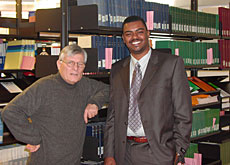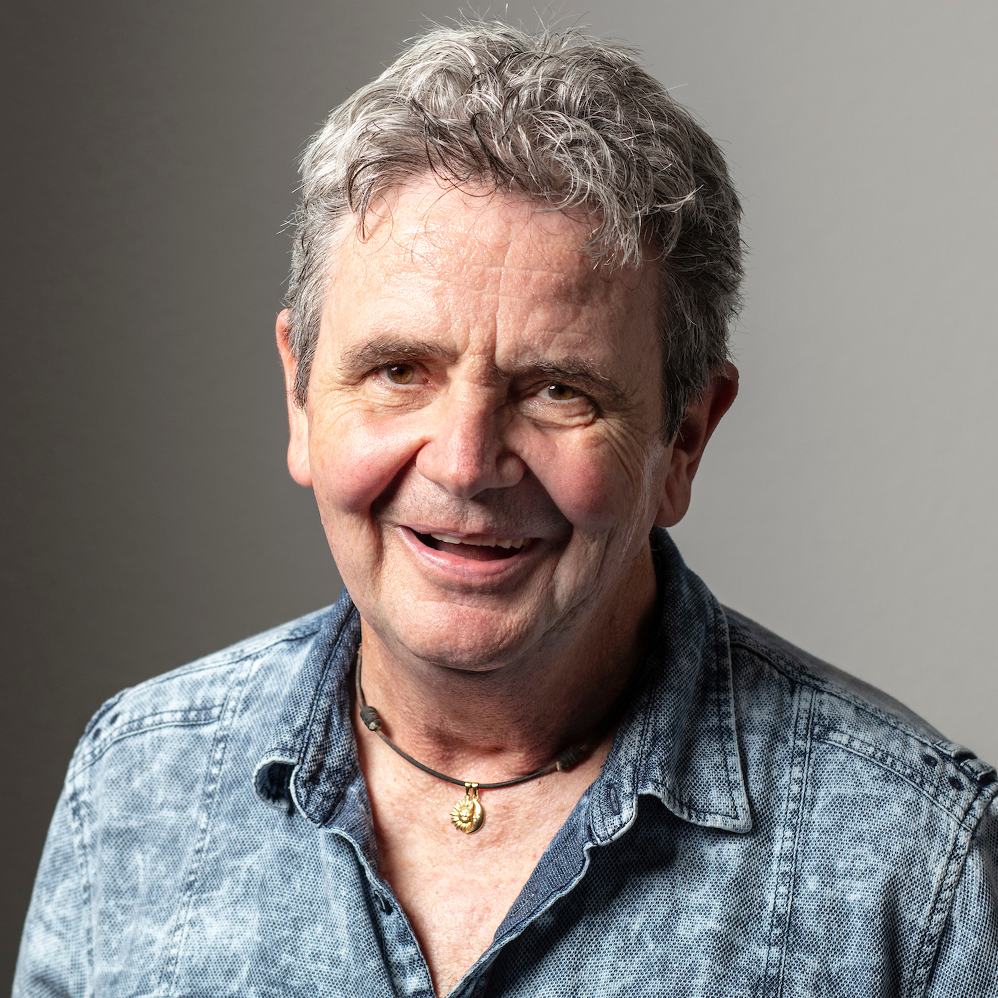swiss lessons for sudan

Federalism cannot be exported, but a Sudanese lawyer says tiny Switzerland's political structure can be tailored to his huge war-torn country.
Omer Awadalla Ali, who carried out his doctoral studies at the Institute of Federalism at Fribourg University, reflects upon his nation’s future.
It only took three weeks for Ali to catch the federalism bug when he took part in one of the institute’s summer courses back in August 2000.
The lawyer, who works for the Sudanese justice ministry in Khartoum, visited Switzerland to study the topic of peaceful coexistence in a multi-cultural country.
The following year he returned to the university as a research student, spending another four years in Fribourg.
The result: a 320-page doctoral thesis entitled “A comparative case study of Sudan: federalism as a conflict-resolution mechanism in a multi-ethnic and multi-cultural
society”.
To gain a better understanding of how people can live together peacefully under one flag, Ali’s research looked beyond Switzerland and Sudan. He studied two relatively centralised countries – France and Turkey – and two others with a federal system, Germany and the United States.
Identity
For the last two, he reached the conclusion that national identity supersedes ethnic and cultural differences; the famous “melting pot” generally creates national cohesion.
But he felt that the Swiss system was the one that responds best to
cultural diversity. For Sudan, this is the most interesting aspect since the country has been torn apart by civil wars almost since independence in 1956.
“However, this doesn’t mean that [the Swiss system] is exportable in this form. There are huge differences between the two countries,” explained Ali.
In January 2005, a peace accord suspending hostilities between the Muslim north and the Christian and animist south – rich in petrol reserves – was signed.
But since then, another conflict has erupted in the Darfur region in western Sudan that is developing into one of the worst humanitarian disasters in recent memory.
Sudan, the largest country in Africa, has a temporary constitution that guarantees the southern states considerable autonomy and 50 per cent of oil revenues. In 2011 a referendum could allow them to secede.
Remain united
Ali is relatively sceptical about the system though. He believes that Sudan can and must remain united.
“The people in the south are not our enemies and there are already millions of southerners living in the north of the country,” he added.
But to do so, Sudan needs a proper federal system. And according to Ali’s thesis, the constitution is just one of four essential pillars.
Minority cultures also need to have their right to exist guaranteed to ensure that a majority does not impose its views on the others.
For the Sudanese lawyer, the very fact that the name of the Swiss currency – the franc – came from the French-speaking minority and can still be used in each of the four different national languages is worth stressing.
In a democracy majority decisions should not be imposed on minority groups. Ali believes there should be ties between minorities and the authorities and the administration in power.
He was extremely impressed by the presence of French- and Italian-speakers in the Swiss
government system.
He also reckons that it is crucial for national wealth to be equally shared out, with the state ironing out regional disparities. This is an area in which Sudan has a lot of work to do according to Ali.
Inspiration
Switzerland is a direct inspiration for about 40 per cent of his proposals for Sudan’s future.
He considers the mechanism that allowed three districts in the Jura region to peacefully split from canton Bern with local, regional and national approval while still remaining part of Switzerland to be of particular interest.
For the time being, the young lawyer is back in Khartoum passing on what he has learnt, while continuing to develop close ties with what he now considers his second home.
swissinfo, Marc-André Miserez
The Institute of Federalism at the University of Fribourg organises a summer university course and regularly invites foreign research students. The Swiss Agency for Development and Cooperation covers part of the costs.
Julian Hottiger, a Swiss expert in constitutional law and former member of the Institute of Federalism, took part in Sudan’s north-south peace negotiations. He later was involved as a mediator in the Darfur conflict.
In 2004, Switzerland gave Sfr16.7 million in aid, mostly for humanitarian work, to Sudan.
In 2005, Bern promised to give Sudan Sfr97 million in aid over three years.
Between 1956 and 2006, Sudan has only experienced 11 years of relative peace.
Civil wars, mainly between the north and the south of the country, have resulted in over two million deaths and driven four million people from their homes.
Sudan – one of the poorest countries in the world – is currently trying to deal with the Darfur crisis, described by the UN as the worst humanitarian disaster since 2000.

In compliance with the JTI standards
More: SWI swissinfo.ch certified by the Journalism Trust Initiative

You can find an overview of ongoing debates with our journalists here . Please join us!
If you want to start a conversation about a topic raised in this article or want to report factual errors, email us at english@swissinfo.ch.